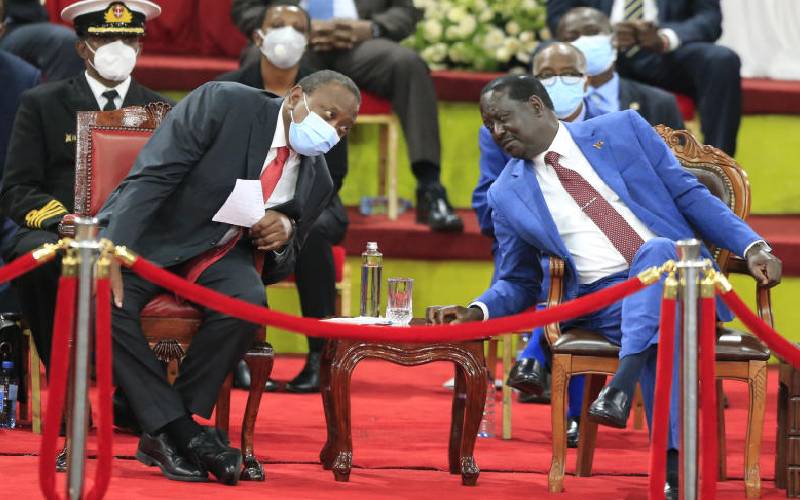×
The Standard e-Paper
Stay Informed, Even Offline

President Uhuru Kenyatta and ODM leader Raila Odinga during the launch of the BBI report at the Bomas of Kenya on Monday. [Stafford Ondego, Standard]
All eyes are on President Uhuru Kenyatta and Opposition leader Raila Odinga to explain to Kenyans what the next steps for the Building Bridges Initiative (BBI) report would be.